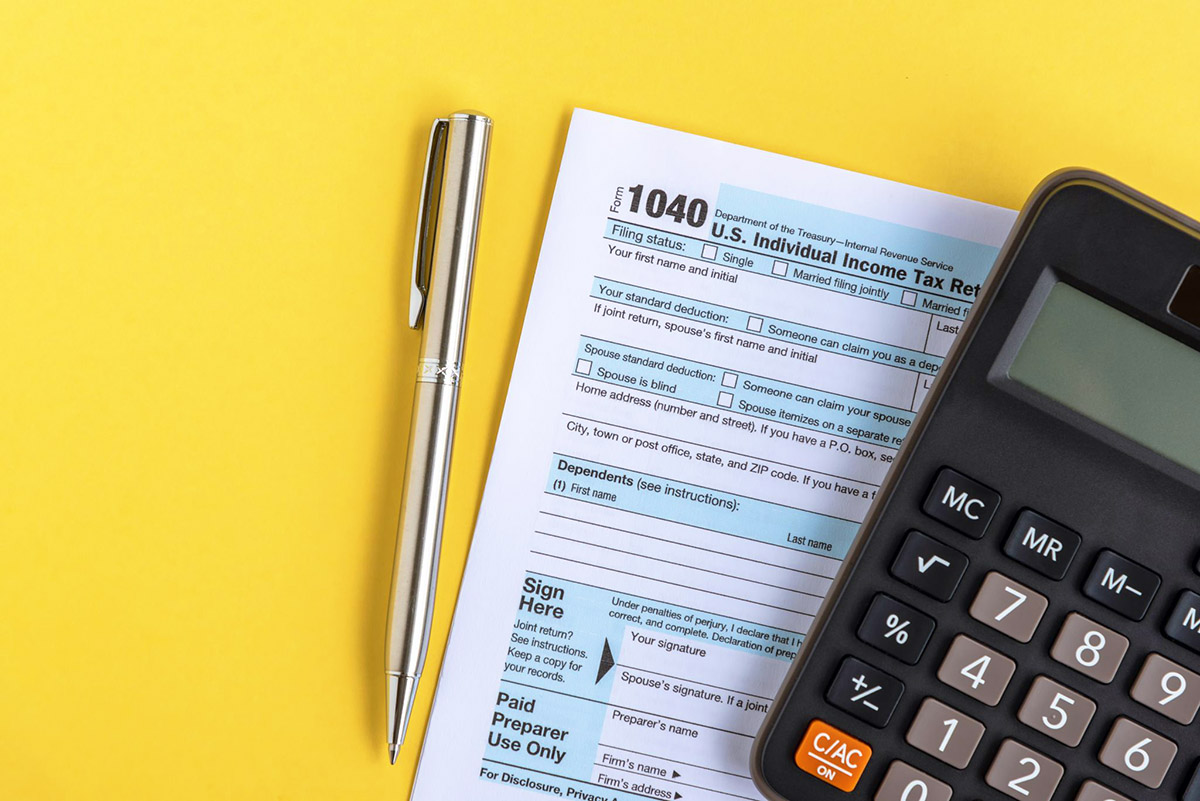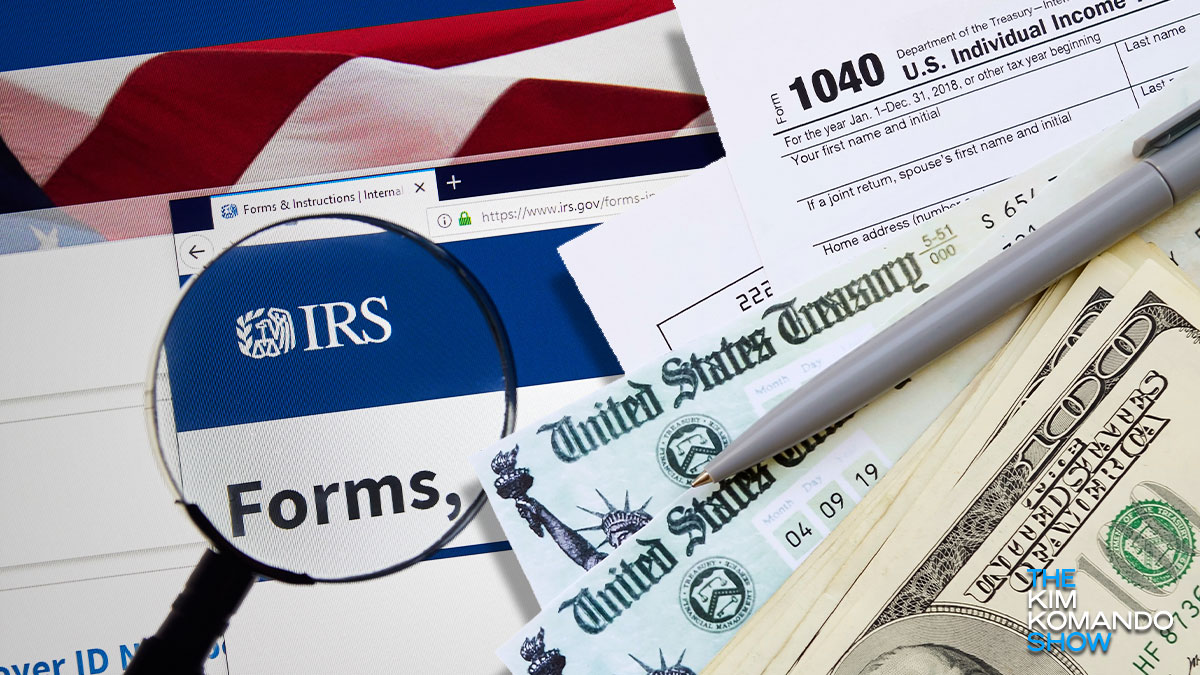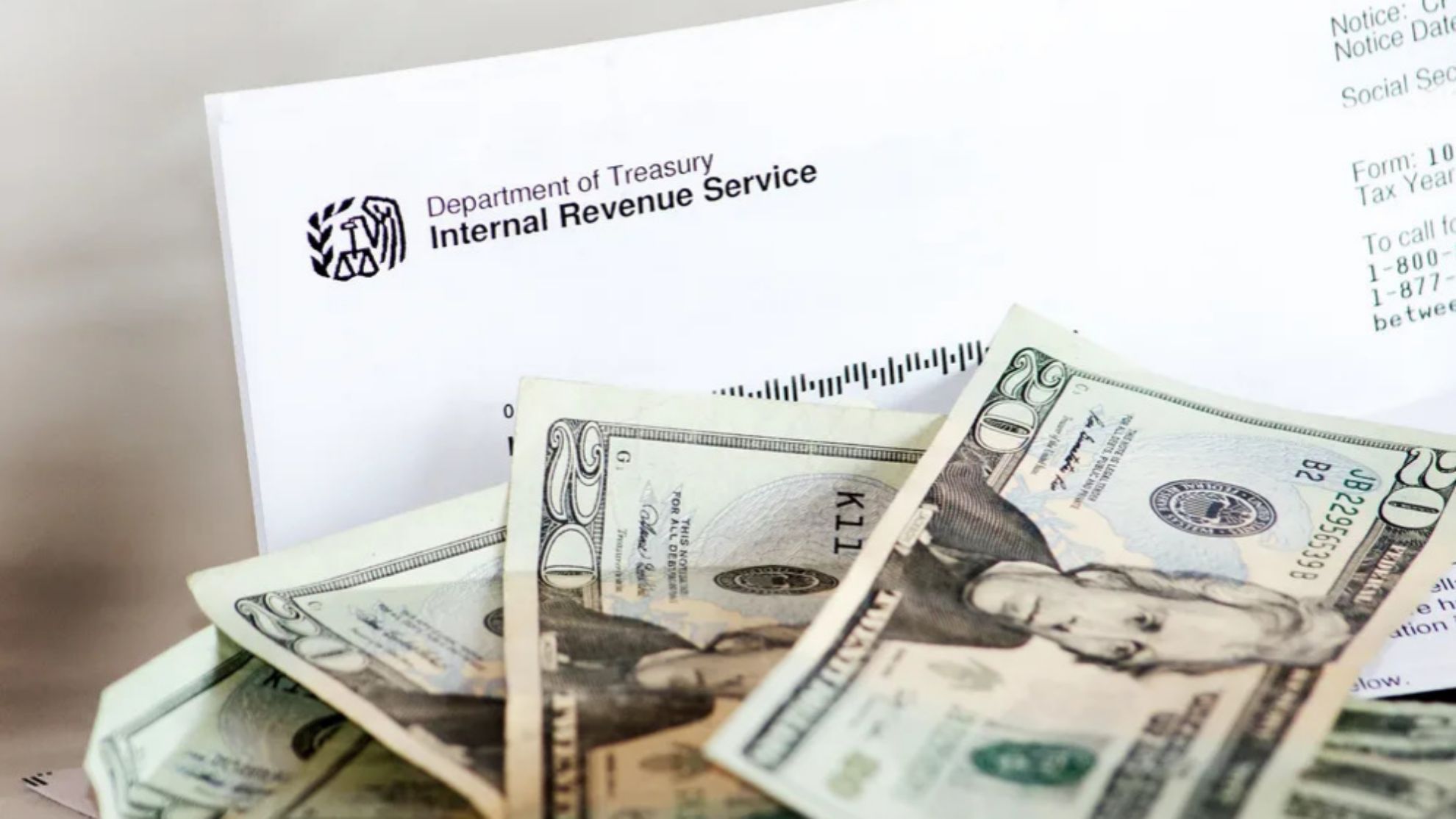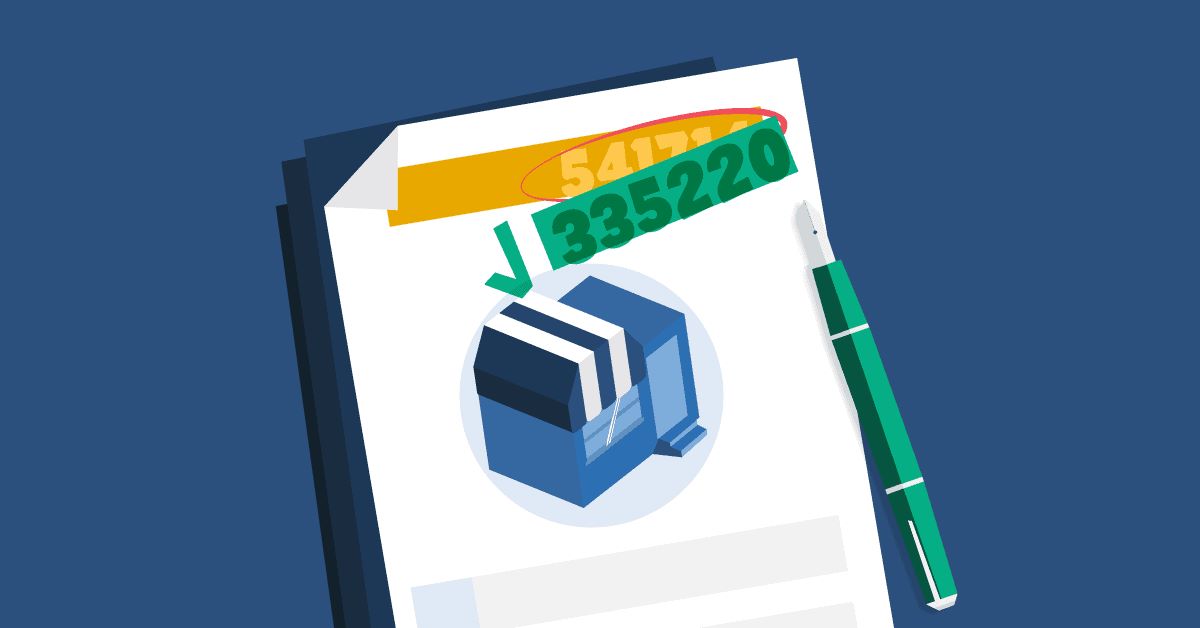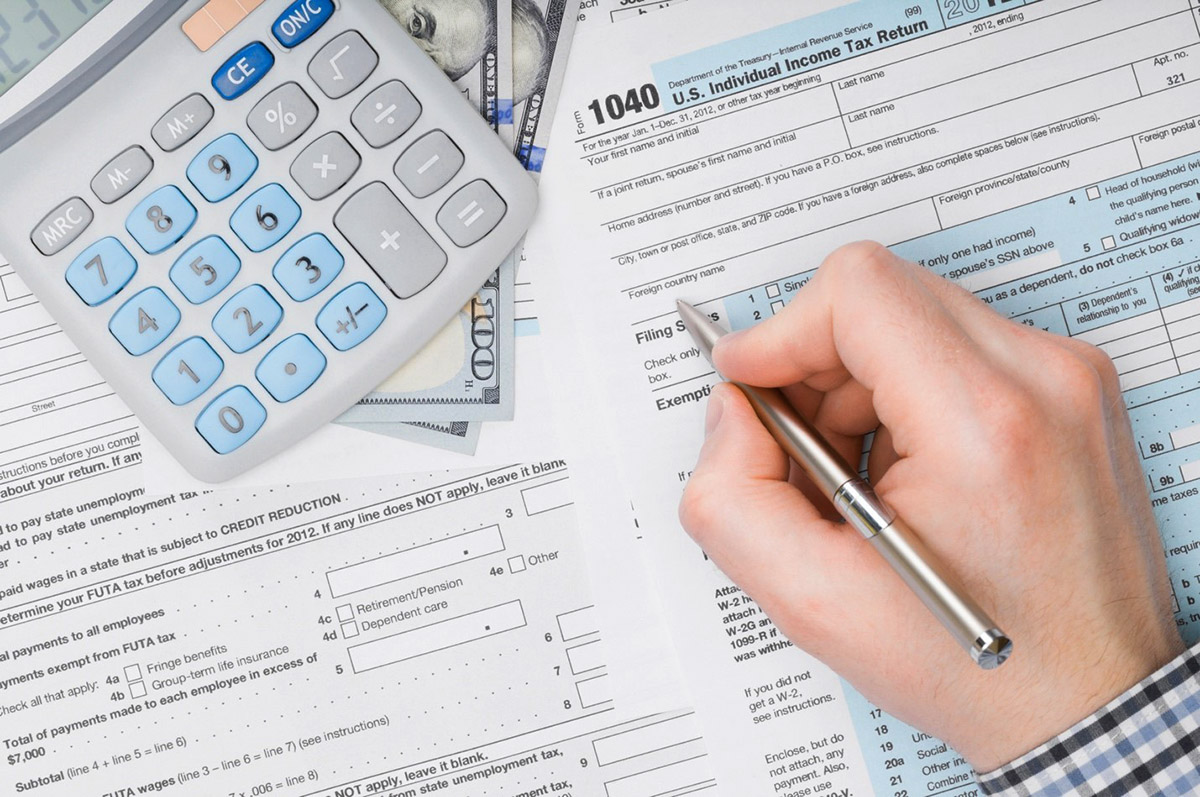Home>Finance>Where Can I Find The NAICS Code On A Tax Return?


Finance
Where Can I Find The NAICS Code On A Tax Return?
Published: October 29, 2023
Looking for the NAICS code on a tax return? Discover where to find it and gain valuable insights into Finance.
(Many of the links in this article redirect to a specific reviewed product. Your purchase of these products through affiliate links helps to generate commission for LiveWell, at no extra cost. Learn more)
Table of Contents
Introduction
Welcome to the world of finance! As an individual or business owner, understanding the intricacies of the financial landscape is essential for making informed decisions and optimizing your financial well-being. One crucial aspect of this is knowing your NAICS code.
NAICS, or the North American Industry Classification System, is a standardized system used by government agencies, businesses, and researchers to classify industries based on their economic activities. It provides a consistent framework to analyze and compare businesses across North America, making it easier to gather and analyze industry-specific data.
While NAICS codes have multiple applications, including statistical analysis and economic forecasting, they are also important when it comes to tax returns. The Internal Revenue Service (IRS) uses NAICS codes to classify businesses for tax purposes, ensuring accurate reporting and identification of industry-specific tax regulations.
In this article, we will explore the significance of NAICS codes on tax returns and guide you on how to find them on different tax forms. By understanding the role of NAICS codes in the tax filing process, you can ensure compliance with IRS regulations and make the most of the available tax deductions and credits specific to your industry.
Understanding NAICS Codes
Before we delve into how NAICS codes are relevant to tax returns, let’s first gain a deeper understanding of what they are and how they work.
NAICS codes are a classification system that organizes industries into specific categories based on their primary economic activity. They were developed jointly by the United States, Canada, and Mexico to facilitate consistent data analysis across North America. The codes themselves consist of six digits, with each digit representing a different level of classification. The first two digits represent the sector, the third digit represents the subsector, the fourth digit represents the industry group, and so on.
The purpose of the NAICS codes is to provide a standardized method for identifying and comparing businesses within the same industry. This helps with data collection, market research, and policy-making, as well as facilitating smoother business transactions and trade.
It is important to note that NAICS codes are industry-specific and focus on the primary economic activity of a business. Therefore, a company engaged in multiple lines of business may have multiple NAICS codes, each representing a different aspect of its operations.
NAICS codes are periodically updated to reflect changes in the economic landscape and the emergence of new industries. The most recent version, NAICS 2017, is currently in use and offers a more detailed classification system than previous versions.
Now that we have a foundational understanding of NAICS codes, let’s explore their significance on tax returns and how they can impact your financial reporting.
Importance of NAICS Codes on Tax Returns
The inclusion of NAICS codes on tax returns serves several important purposes. It allows the IRS to accurately classify and analyze businesses within specific industries, ensuring compliance with industry-specific tax regulations and providing a reliable basis for statistical reporting.
One of the primary reasons why NAICS codes are important on tax returns is that they help the IRS identify the appropriate tax rules and regulations that apply to different industries. This classification enables the IRS to enforce industry-specific tax laws, such as deductions, credits, and tax treatments that are unique to certain sectors.
Furthermore, NAICS codes help streamline the tax filing process for businesses. By providing the IRS with your NAICS code, you ensure that your tax return is routed to the appropriate department for processing. This helps to avoid delays and potential errors in the review and assessment of your tax liability.
Additionally, NAICS codes are used by the IRS for statistical purposes. They provide valuable data that helps the government assess the health and trends of different industries, which in turn aids in policy-making and economic planning. By accurately reporting your NAICS code, you contribute to the accuracy and reliability of these statistical analyses.
Moreover, NAICS codes play a crucial role in determining eligibility for certain tax incentives and benefits. Many tax deductions and credits are specific to certain industries or activities. By correctly identifying your NAICS code, you ensure that you are availing yourself of all the deductions and credits that you qualify for, potentially reducing your tax burden and increasing your overall tax efficiency.
Overall, understanding and correctly reporting your NAICS code on your tax return is of vital importance. It ensures compliance with industry-specific tax regulations, streamlines the tax filing process, contributes to statistical reporting, and maximizes your eligibility for tax incentives and benefits specific to your industry.
Finding the NAICS Code on a Tax Return
Now that we understand the importance of NAICS codes on tax returns, let’s explore how to find them on different tax forms.
On individual tax returns, such as Form 1040, you may not explicitly find a field labeled “NAICS code.” However, you can determine your NAICS code based on your occupation or industry. The IRS provides a searchable database called the Business Code Lookup Tool, which you can use to find the appropriate NAICS code based on your occupation. Simply enter relevant keywords that describe your business or industry, and the tool will provide a list of matching NAICS codes to choose from.
For business tax returns, such as Form 1120 for corporations or Form 1065 for partnerships, you will typically find a specific field to enter your NAICS code. This code should accurately represent the primary economic activity of your business. If you are unsure about the appropriate NAICS code for your business, you can use the Business Code Lookup Tool mentioned earlier or consult with a tax professional for guidance.
It’s important to note that the NAICS code you provide on your tax return should align with the nature of your business and the activities you engage in. Misreporting or inaccurately reporting your NAICS code may result in consequences such as incorrect tax assessments or missed tax benefits that you could have otherwise claimed.
Remember, NAICS codes are designed to classify businesses based on their primary economic activity and industry. Therefore, it’s crucial to select the most accurate code that reflects your business operations.
Keep in mind that the NAICS code you provide on your tax return may be subject to review and verification by the IRS. Therefore, it’s essential to ensure the accuracy of your NAICS code and keep any supporting documentation or records that validate your classification.
If you need further assistance in determining the appropriate NAICS code for your business or have any questions related to reporting it on your tax return, consider consulting with a tax advisor or reaching out to the IRS for guidance.
Location of the NAICS Code on Different Tax Forms
The location of the NAICS code on different tax forms may vary. Here are some common tax forms and where you can find the NAICS code:
- Form 1040: On individual tax returns, such as Form 1040, there may not be a specific field labeled “NAICS code.” Instead, you will determine your NAICS code based on your occupation or industry. You can use the IRS Business Code Lookup Tool to find the appropriate NAICS code based on your occupation.
- Form 1120: For corporations filing Form 1120, you will typically find a field labeled “Principal Business Activity Code” on Schedule C. This is where you will enter your NAICS code, which should accurately represent the primary economic activity of your business.
- Form 1065: Partnerships filing Form 1065 will also find a field labeled “Principal Business Activity Code” on Schedule C. Enter the appropriate NAICS code that reflects the primary economic activity of your partnership.
- Form 1120-S: S corporations filing Form 1120-S will also use Schedule K to report their NAICS code in a field called “Principal Business Activity Code.” Ensure that you select the appropriate NAICS code that aligns with the primary economic activity of your S corporation.
- Form 990: Nonprofit organizations filing Form 990 can report their NAICS code on Schedule A in the field labeled “Principal Activity.” Enter the correct NAICS code that represents the primary economic activity of your nonprofit organization.
It’s important to note that the specific location of the NAICS code may vary depending on the form’s version and any updates made by the IRS. Always refer to the latest version of the tax form instructions and carefully review the form to find the exact location for reporting your NAICS code.
If you are uncertain about where to enter your NAICS code on a specific tax form, consult the form’s instructions or consider seeking guidance from a tax professional. Accurately reporting your NAICS code is important for ensuring compliance with IRS regulations and maximizing industry-specific tax benefits.
Additional Resources for NAICS Codes
Locating the correct NAICS code for your business or industry can sometimes be challenging. Fortunately, there are several resources available to assist you in finding the appropriate code:
- NAICS Code Lookup Tool: The Business Code Lookup Tool offered by the Internal Revenue Service (IRS) can be a helpful resource. It allows you to search for NAICS codes based on keywords related to your business activities or industry. This tool provides a list of matching codes that you can choose from.
- NAICS Association: The NAICS Association is a private organization that specializes in providing NAICS code-related services and information. Their website offers a comprehensive search tool that allows you to find NAICS codes based on keywords. They also provide resources and services related to NAICS code classification and consulting.
- Census Bureau: The U.S. Census Bureau is responsible for maintaining and updating the NAICS code system. Their website provides access to the latest NAICS code structure, as well as information about the industries and sectors covered by each code. The Census Bureau also offers resources for data collection and analysis based on NAICS codes.
- Business Advisors or Consultants: If you are still unsure about which NAICS code to use for your business, consider consulting with a business advisor or tax professional specializing in your industry. These experts can provide valuable guidance and support in accurately identifying the most appropriate NAICS code for your business.
When using these resources, it is essential to carefully consider the nature of your business and choose the most accurate NAICS code that reflects your primary economic activity.
Remember, using the correct NAICS code on your tax return is crucial for accurate industry classification, compliance with industry-specific tax regulations, and maximizing tax benefits specific to your sector.
By utilizing these additional resources and ensuring the accuracy of your NAICS code, you can enhance your understanding of your industry’s classification and optimize your financial reporting and tax compliance.
Conclusion
Understanding and accurately reporting your NAICS code on your tax return is essential for several reasons. These codes not only help the IRS classify businesses within specific industries but also ensure compliance with industry-specific tax regulations. By providing the appropriate NAICS code, you enable the IRS to enforce the correct tax rules, deductions, credits, and other provisions that are unique to your industry.
Finding the NAICS code on different tax forms may require some research and consultation. Utilizing resources such as the IRS NAICS Code Lookup Tool, the NAICS Association, and the U.S. Census Bureau can assist you in identifying the most accurate code for your business.
Accurately reporting your NAICS code also contributes to statistical reporting, allowing the government to analyze industry trends, make informed policy decisions, and plan economic initiatives effectively.
Moreover, providing the correct NAICS code on your tax return ensures that you are eligible for industry-specific tax incentives and benefits that may reduce your tax liability and increase your overall tax efficiency.
Remember to consult the specific instructions for each tax form and seek guidance from tax professionals or advisors if you have any uncertainties about reporting your NAICS code.
By understanding the importance of NAICS codes on tax returns and utilizing the available resources, you can navigate the tax filing process with confidence, ensuring compliance with IRS regulations and maximizing your tax benefits within your industry.
